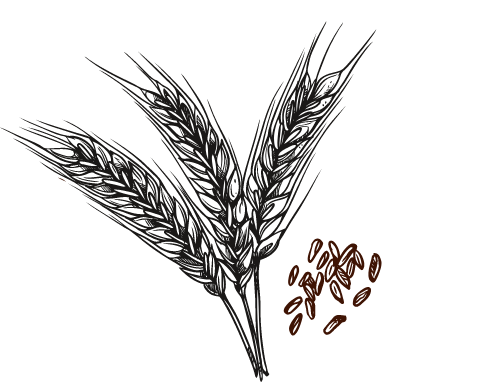Muesli or granola
*Written by MakeMeHealthy

Sometimes confused, mueslis and granolas have a place of choice in today's breakfasts. And yet, although the cereal base is often the same, their nutritional content is quite different.
Muesli is made up of a base of cereal flakes, very often oat flakes, but it can also be spelt flakes, quinoa, millet, buckwheat flakes, etc.
Seeds, oilseeds and dried fruit are then added. There are many variations: pumpkin seeds, flax seeds, sunflower seeds, hemp seeds, kasha, walnuts, hazelnuts, almonds, flaked almonds, cashew nuts, sultanas, dried apricots, dried figs, etc.
Ideally, the list of ingredients does not contain added sugars/syrups, so it is important to check the list of ingredients and/or to check that the wording "no added sugar" is present on the product. It is also possible to make it at home, very easily, by mixing cereal flakes and toppings of your choice.
Muesli can be eaten for breakfast or as a snack with plant/animal milk, plant/animal yoghurt, cottage cheese and, of course, fresh seasonal fruit cut into pieces that will bring a sweet and sweet side to breakfast. Muesli is a source of carbohydrates and fibre. The carbohydrates help to cover the day's energy needs, providing lasting satiety due to a moderate glycaemic index and the presence of fibre (which also contributes to digestive well-being).
Conversely, if the granola (or crunchy muesli) is made up of the same base of ingredients, there is always an addition of syrups, sugars, oils or honey to bring the crispy post-cooking side. If you look at the list of ingredients, you will see these different ingredients: the order is important. The first ingredient is the one contained in the largest quantity. Very often it is unfortunately the sweetening ingredient that arrives from the second position.
Granola has an impact on blood sugar levels, causing them to rise rapidly and then fall just as quickly. This will then lead to cravings, fatigue and snacking. Finally, variations in blood sugar levels are not good for long-term health, as they lead to too regular a demand on insulin, which in the long term, in addition to increased fat storage, can lead to pathologies (type 2 diabetes, ...).
Of course, as always we have an alternative for you! If you don't like muesli or you want to vary, you can make your own granola. The trick is to replace the sugar, honey or syrup with a fruit puree (apple, banana...). 30 minutes in the oven at 180°C and you're done!
Find all the granola and muesli recipes on https://makemehealthy.app/.








